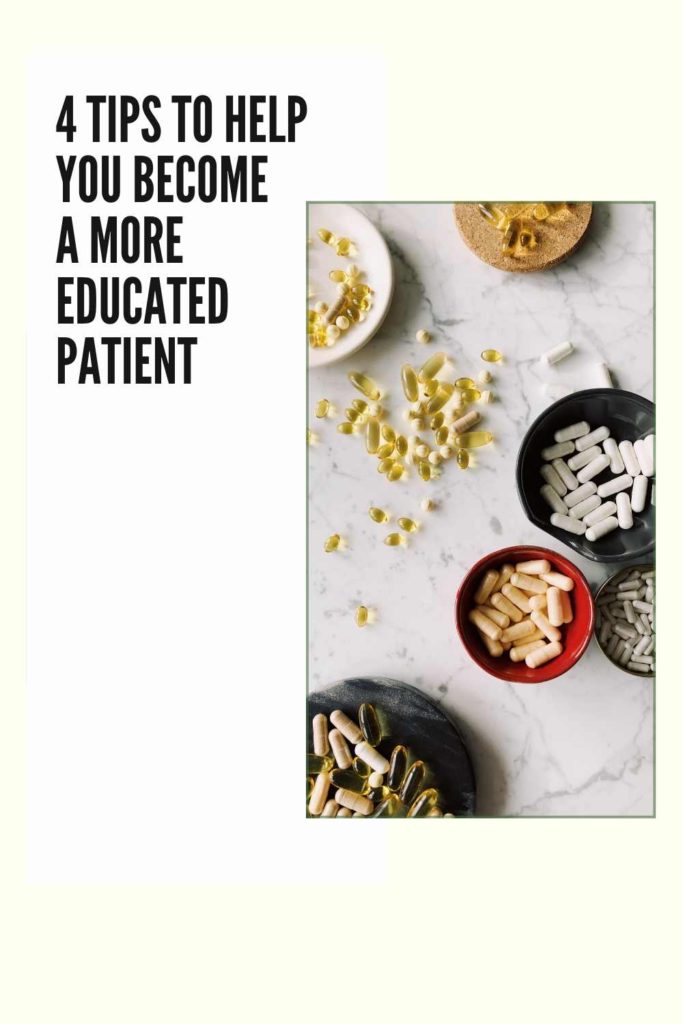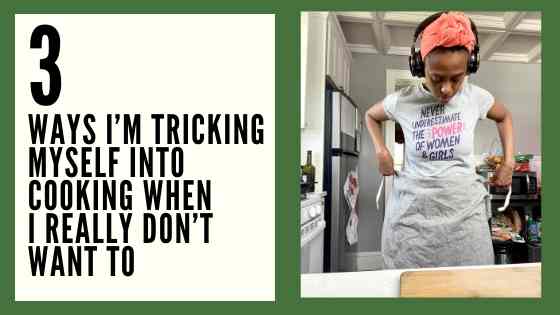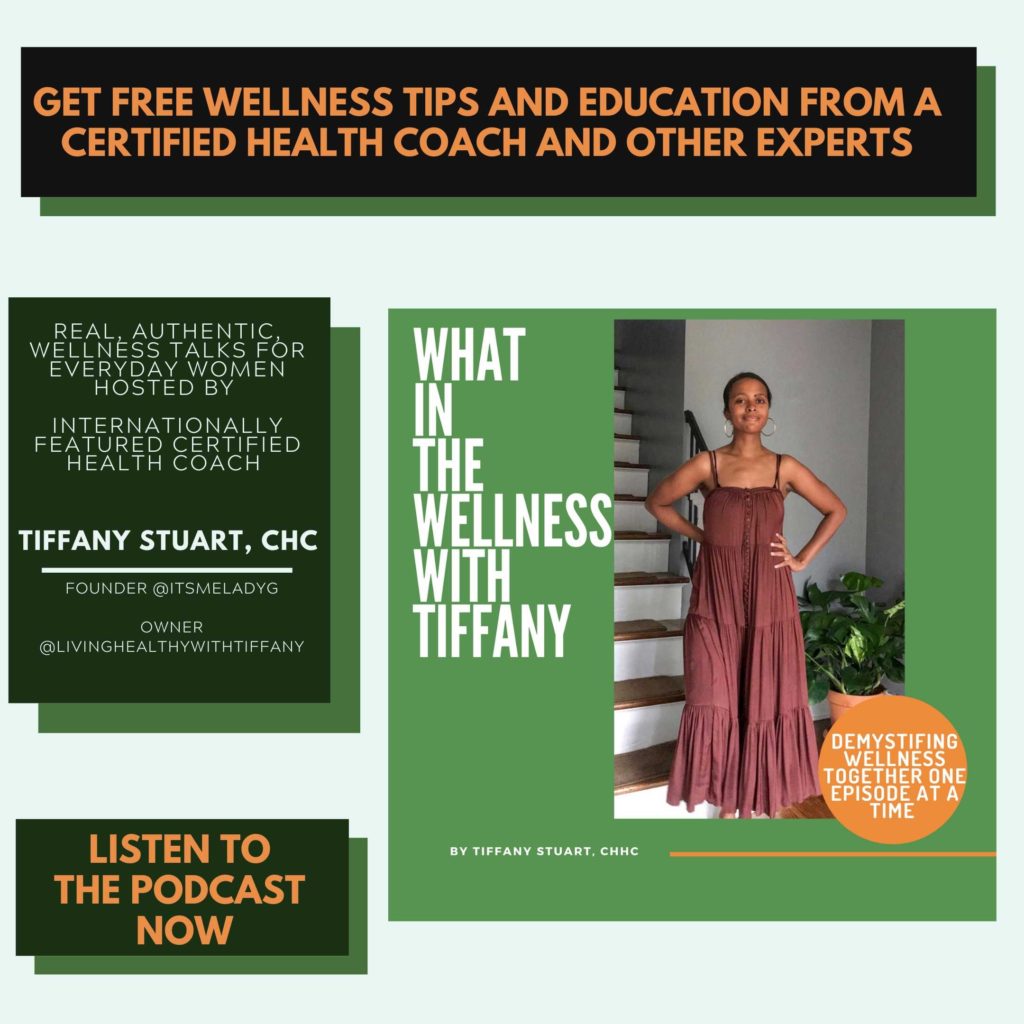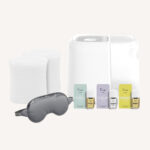How does someone become a more educated and informed patient? Why should everyone strive to be one?

Better questions are: Why is it necessary for some groups of people to NEED to become one in order to ensure their medical care is on par with other groups of people? And why is the concept of having educated patients and the “challenges” resulting from treating them up for examination by the medical field?
No, I’m not kidding.
According to this article titled “The Educated Patient: New Challenges for the Medical Profession”:
“Together, the easier availability of information and higher expectations of individual rights have changed the way people relate to health professionals. A few decades ago, doctors were seen as unfailingly powerful sources of knowledge and expertise – second only to a person’s own family. The relationship between doctor and patient was one of deference, obedience and instruction. In recent times, many of those assumptions have been questioned. In a society with many different cultures (ethnic, regional, generational), awareness that there is no single absolute truth is rising. “
But, that’s not what this post is about.
I’m bringing it up for context to stress the importance and simultaneous unicorn-like nature of simply being able to be an active and informed participant in your health.
Because of this, I thoroughly enjoy being the aforementioned unicorn.

Now don’t get me wrong. Being an informed and educated patient is not a replacement for seeking medical advice or treatment. I will never ever tell someone to NOT see a doctor. In fact, I make it a point to add a disclaimer for people TO SEE their doctor for advice or questions when I share my personal experiences with health on my blog.
An educated & informed patient is someone who has a comfortable level of health literacy and interacts with the medical system for the betterment of their own health journey.
According to the National Library of Medicine, health literacy is defined as:
“Health literacy requires a complex group of reading, listening, analytical, and decision-making skills, as well as the ability to apply these skills to health situations. For example, it includes the ability to understand instructions on prescription drug bottles, appointment slips, medical education brochures, doctor’s directions and consent forms, and the ability to negotiate complex health care systems.”
Too often, the doctor patient relationship is one sided with patients leaving confused and feeling discouraged about their way to health instead of empowered.
Working to help myself and others become more familiarized with common medical conditions, terms, and even simple ways to support my health with nutrition was the reason why I decided to become a Certified Health Coach in the first place.
Again, a doctor or medical professional should never be replaced with anything you find on the internet or someone’s else words or experience. However, being able to support and supplement our experiences within the medical system is an essential right and skill we all should continuously work to develop.
That said, here’s a couple of simple steps and practices everyone should take to help kickstart their lifelong pursuit of becoming a more educated and informed patient.

#1 Request A Copy of Your Medical Records From EVERY Single Doctor
I posted this one first because it is the easiest one to complete and the best way to set the tone for anyone new to becoming their own health advocate.
Each time you visit a doctor, a file is created. That’s not rocket science.
However, I’m always so surprised when people tell me they never thought to request a copy of their medical record for their own viewing and personal files. I mean, it is YOUR file.
The one added benefit I’ve noticed during my health advocacy journey and periodically asking for a copy of my records is the marked improvement in bedside manner from the medical professional who is caring for me as a result of it. It seems the simple act of asking for the record changes the way I am perceived. Well, that in addition to the questions I prepare to ask my doctor which I will share a sample of below.
The request for a copy of your records shouldn’t be complicated but has become more computerized. Sometimes when you ask for the record, they ask if it’s going to another doctor’s office and offer to fax it for you. But, they should always be able to give you a paper copy. Or if they only give you a single copy, don’t be afraid to make a copy for your own as they may charge you for additional one.
Either way, keep your copy. Read it over. Make sure everything looks right according to your recollection. Get familiarized with the words, and terms used. Google the terms for clarity. Again, you don’t need to play doctor, but remember, knowledge is power.
#2 Write Down Your Questions For Your Doctor AND ACTUALLY ASK THEM
Before we go to our doctor’s appointment, we naturally have a long list of questions that cross our mind based on what may be going on with us. However, fear has a tendency of catching our tongue once we get on that exam table.
I know that’s what happened to me more often than it should’ve.
So, I started keeping a running list of questions I wanted to ask my doctor during my next appointment right in my phone’s notes. It doesn’t matter how small or silly of a question, add it to the list.
Now, when you get to the office, challenge yourself to ask them all NO MATTER WHAT!
Believe me, it can be scary at first, but this step is crucial in becoming your own health advocate.
I promise it gets easier after you get the first question out. Plus, as mentioned earlier, it seems the more involved you are with your health journey, the more empowered you will be and feel.

#3 Sign Up To Get Your Test Results Sent Directly To You
With so many things being outsourced nowadays, it’s become more of the norm to get your medical and other health and wellness testing at facilities outside of your doctor’s office. In addition, there are a lot of practices that offer online patient portals where you can receive test results and send messages to your doctors directly.
The benefit of using this offered service is the option to research your results prior to speaking to your doctor during your next appointment. I’ve also found that I receive the results earlier than I would waiting to hear from my doctor. Lastly, I am able to mentally process the results at my own pace and show up at my doctor’s appointment more related and able to make less emotion charged decisions.
If your medical professional provides an online option to communicate or receive test results, be sure to take advantage of them.
#4 Ask Questions That Get Real Answers
Now that you’re getting used to asking questions that would’ve made you uncomfortable, let’s make sure to structure them to get real answers. I really don’t know why, but some doctors have a way of not truly answering questions when you ask them.
Let me give you an example.
I recently visited my doctor to get the results of an ultrasound I was advised to get after some fullness was found in my pelvic area. Admittedly, I walked into my doctor’s office pretty familiar with what the usual steps and reasoning behind the testing performed in addition to a general understanding of the diagnosis my doctor was about to share with me BEFORE she even opened her mouth. All due to tip #3.
But when she shared the diagnosis per the test results, she did not share them verbatim.
On the results I received directly, it diagnosed me with Pelvic Congestion Syndrome. Pelvic Congestion Syndrome is a condition where I have varicose veins in my pelvic area. I have no proof, but it seems that I developed symptoms of it after delivering my daughter (my second pregnancy). I will share more on the details of that in another post.
My doctor did not even mention the diagnosis specifically but did casually mention the simple cysts that were picked up during testing. She suggested follow up ultrasound testing to see how they were in a couple of weeks.
I stopped her and asked her to review the test results again to confirm the diagnosis of Pelvic Congestion Syndrome. She looked down at my medical record and said “Yes, I see that.”
I then asked her to give me some background on the condition to further explain it. Granted, I had conducted my own research and was pretty familiar with the known causes and information currently available on the topic. But, I wanted to supplement my research with any other information that she could provide.
Unfortunately, she answered by simply saying “Are you in pain?”. Disappointed by her evasive answer, I answered that I felt slight discomfort only during the week before my period as I meticulously track my cycle throughout the month. She responded with “Well, we normally only address it if there is real pain experienced”.
I tried to prod for a bit more information by asking “Are you sure there’s not more information you could give me on the subject?” to which she repeated how it’s addressed when pain is present, and tried to move onto the next part of the exam.
Being that I took the time to sign up to get the results sent to me, and did the subsequent research. I was disturbed with how it was handled, but did not freak out because I knew the condition wasn’t life threatening. Some may say that may be reason why she didn’t make a big deal of it, but wouldn’t you want to know all of what’s going on with your body?
Additionally, I wanted to stress the importance of being persistent and ask questions that force an answer. Asking “Are you sure…” after receiving the first answer should have resulted in more of an explanation. But, it did not in this case.
Other questions you could ask include:
“Could you further clarify…for me. ”
“I need more information on XYZ for my research, could you explain this more?”
And for the record, I am currently on the search for a new doctor.
I hope these tips and experiences help demonstrate how you can be more empowered in your own medical care.
Remember, very few will take care of you as well as you can.








